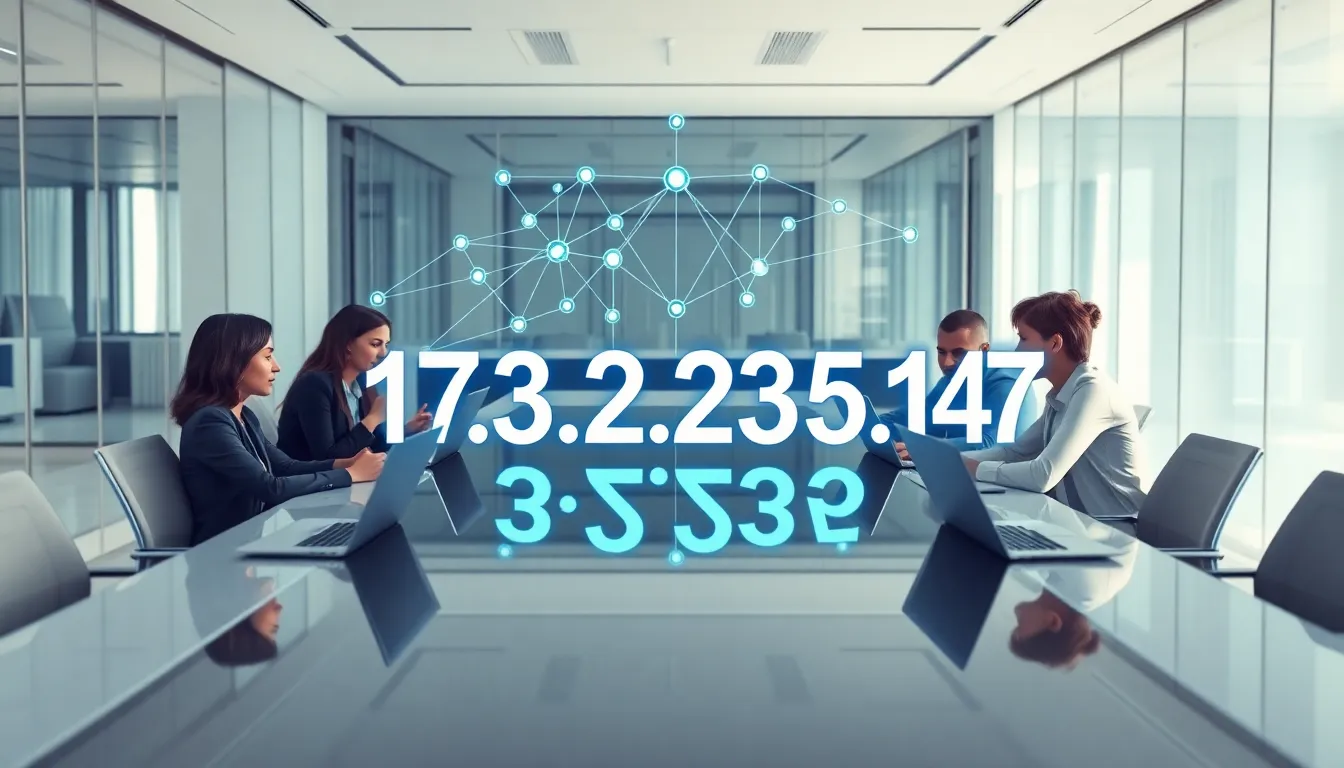Ever wondered what that jumble of numbers, 173.212.235.147, really signifies? It’s not just a random sequence: it’s an IP address that holds layers of meaning and purpose in the vast Internet realm. Think of it as a digital fingerprint that identifies devices on a network. If you find yourself scratching your head at terms like geolocation or security audits when it comes to IP addresses, you’re in the right place. Let’s embark on this exciting journey of unraveling what an IP address means and what makes 173.212.235.147 stand out from the crowd.
Table of Contents
ToggleWhat Is an IP Address?

An Internet Protocol (IP) address is a unique identifier for a device on a network. Imagine trying to send a postcard without knowing the recipient’s address: it would just be a mess. Similarly, an IP address serves as your digital address on the Internet. Each time you connect to the Web, your device is assigned an IP, which helps networks correctly route the data you send and receive. It ensures that your requests reach the intended servers and that responses come back to you swiftly.
IP addresses can be thought of in two main formats, IPv4 and IPv6. IPv4, consisting of four sets of numbers (like 173.212.235.147), is the most familiar but is running out of available addresses. IPv6 was created to solve this issue, offering a vast array of addresses. Perhaps you’ll encounter both types in your web journey, but IPv4 remains immensely popular due to its simplicity.
Types of IP Addresses
IP addresses can broadly be categorized into several types, each serving specific functions. First, there’s the public IP address, which is assigned to networks so devices can communicate over the global Internet. These addresses can be dynamic, changing over time, or static, remaining constant.
Then there are private IP addresses designed for use within private networks, like your home Wi-Fi. Devices connected to your local network get private IPs, facilitating smooth communication while keeping them hidden from the broader Internet. It’s like having a secret club where only the members know each other.
Also, there are special purpose addresses, like loopback IP (127.0.0.1), used for testing and troubleshooting. Depending on your needs, each type of IP address plays a vital role in online activities.
Geolocation of 173.212.235.147
Understanding the geographical position of an IP address can unveil crucial insights, and 173.212.235.147 is no exception. Utilizing geolocation services, this IP can be traced back to specific regions or countries. Through various tools and databases, one can determine whether it belongs to a home user, a business, or even a data center.
In this case, geolocation data indicates that this IP address originates from North America. Knowing the general location helps businesses tailor their services based on regional preferences and blocks unwanted traffic, enhancing overall safety. Inevitably, depending on your online needs, such insights can boost targeted marketing strategies.
Common Uses of This IP Address
Curiosity surrounds the myriad of uses for IP addresses like 173.212.235.147. Organizations and individuals alike leverage these addresses for various purposes. Often, companies use IP addresses to track and analyze their web traffic: this can improve customer experience significantly.
Besides, ISPs may employ such addresses for managing their networks efficiently. From connecting multiple devices to streaming services, these addresses play a crucial role. Some might even look up the IP address to ensure online security or identify potential threats. In a world full of digital footprints, knowing how IP addresses are utilized provides insight into their vital role in online interactions.
Security Implications of 173.212.235.147
Security concerns often attach themselves to IP addresses, including 173.212.235.147. Hackers look for vulnerabilities that can be exploited, meaning each address can become a target. Organizations must stay vigilant against potential threats connected to specific IPs.
To mitigate risks, many employ firewalls and intrusion detection systems, monitoring unusual activities linked to certain addresses. The key is to recognize the risks while understanding that not every activity tied to an IP is malicious. By tracing activities linked to 173.212.235.147, for example, one can discern between legitimate traffic and potential risks.
How to Trace an IP Address
Tracing an IP address like 173.212.235.147 opens a gateway to understanding its history and associated activities. Beginners can leverage various online tools and websites that provide detailed information about the IP’s owner and geographical location.
For more advanced users, using command-line interfaces or network management tools can reveal deeper insights. Tracing an IP can help ascertain if someone is acting suspiciously online or if the info received from that IP address is trustworthy. A thorough investigation can lead to a wealth of insights.










